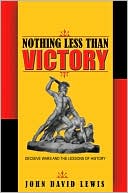Category Books
- Fiction Books & Literature
- Graphic Novels
- Horror
- Mystery & Crime
- Poetry
- Romance Books
- Science Fiction & Fantasy
- Thrillers
- Westerns
- Ages 0-2
- Ages 3-5
- Ages 6-8
- Ages 9-12
- Teens
- Children's Books
- African Americans
- Antiques & Collectibles
- Art, Architecture & Photography
- Bibles & Bible Studies
- Biography
- Business Books
- Christianity
- Computer Books & Technology Books
- Cookbooks, Food & Wine
- Crafts & Hobbies Books
- Education & Teaching
- Engineering
- Entertainment
- Foreign Languages
- Game Books
- Gay & Lesbian
- Health Books, Diet & Fitness Books
- History
- Home & Garden
- Humor Books
- Judaism & Judaica
- Law
- Medical Books
- New Age & Spirituality
- Nonfiction
- Parenting & Family
- Pets
- Philosophy
- Political Books & Current Events Books
- Psychology & Psychotherapy
- Reference
- Religion Books
- Science & Nature
- Self Improvement
- Sex & Relationships
- Social Sciences
- Sports & Adventure
- Study Guides & Test Prep
- Travel
- True Crime
- Weddings
- Women's Studies
Nothing Less than Victory: Decisive Wars and the Lessons of History »

Authors: John David Lewis
ISBN-13: 9780691135182, ISBN-10: 0691135185
Format: Hardcover
Publisher: Princeton University Press
Date Published: February 2010
Edition: (Non-applicable)
Author Biography: John David Lewis
John David Lewis is visiting associate professor of philosophy, politics, and economics at Duke University, and senior research scholar in history and classics at the Social Philosophy and Policy Center at Bowling Green State University. He is the author of "Solon the Thinker: Political Thought in Archaic Athens and Early Greek Lawgivers".
Book Synopsis
"John David Lewis offers a superb appraisal of how ancient and modern wars start and finish. This chronicle of some 2,500 years of Western history is replete with a philosophical analysis of why nations fight, win--and lose. His insights and conclusions are original and fearless--as well as timely and welcome in the confused war-making of the present age."--Victor Davis Hanson, author of Carnage and Culture
"This book's argument is powerful and provocative, and Lewis is a good storyteller and scholar. Ambitious, stimulating, and thoughtful, this book makes a strong case for the value of the strategic offensive, and engages with the kind of problems that everyone should be thinking about today."--Barry Strauss, author of The Spartacus War
Publishers Weekly
Thanks to its recent experience of quagmires that drain into simmering truces, America has forgotten that triumph is the proper way to end a war, argues this brash study of military blowouts. Surveying six conflicts, from the Persian invasion of ancient Greece to WWII, historian Lewis (Early Greek Lawgivers) contends that lasting peace requires a shattering victory, “a display of overwhelming force” that “expose[s] the physical and ideological bankruptcy” of the losers and precipitates “an immediate collapse in [their] will to fight.” Lewis's analysis of war as a psychological struggle and “clash of moral purposes” is lucid and forceful; it's especially telling in his incisive account of Sherman's march through Georgia, and especially provocative in his defense of the atomic bombings of Japan. (“To break the Japanese leaders out of their ideological blinders... American leaders needed to kill a lot of Japanese in a visibly shocking way.”) He's less cogent when he tries to distill profound moral purposes from the murk of the Second Punic War or Roman emperor Aurelian's squabble with Queen Zenobia of Palmyra. Lewis's tight yoking of military success with moral superiority sometimes veers close to the notion that might makes right. (Mar.)
Table of Contents
List of Maps and Illustrations vii Acknowledgments ix Introduction: Victory and the Moral Will to Fight 1
Chapter 1: "To Look without Flinching": The Greco-Persian Wars, 547-446 BC 11
Chapter 2: "Only One Omen Is Best": The Theban Wars, 382-362 BC 36
Chapter 3: "I Will Have My Opponent": The Second Punic War, 218-201 BC 68
Chapter 4: "A Prince Necessary Rather Than Good": The Campaigns of Aurelian, AD 270-275 109
Chapter 5: "The Hard Hand of War": Sherman's March through the American South, AD 1864-1865 141
Chapter 6: "The Balm for a Guilty Conscience": British Appeasement and the Prelude to World War II, AD 1919-1939 184
Chapter 7: "Gifts from Heaven": The American Victory over Japan, AD 1945 237
Conclusion: The Lessons of the Victories 286
Notes 295
Bibliography 323
Index 345
Subjects
 Military History
Military History  General & Miscellaneous Military History
General & Miscellaneous Military HistoryHistory
 Political History
Political History  Diplomacy & International Relations
Diplomacy & International RelationsHistory
 World History
World History  General & Miscellaneous World History
General & Miscellaneous World HistoryNonfiction
 Philosophy
Philosophy  Major Branches of Philosophical Study
Major Branches of Philosophical StudyNonfiction
 All Nonfiction
All Nonfiction  Diplomacy & International Relations
Diplomacy & International RelationsPhilosophy
 Major Branches of Philosophical Study
Major Branches of Philosophical Study  Ethics & Moral Philosophy
Ethics & Moral PhilosophyPolitical Books & Current Events Books
 International Relations
International Relations  Peace Studies
Peace StudiesPolitical Books & Current Events Books
 All Politics
All Politics  Diplomacy & International Relations
Diplomacy & International RelationsNonfiction
 History
History  Military History
Military HistoryNonfiction
 History
History  Political History
Political HistoryNonfiction
 History
History  World History
World HistoryNonfiction
 Politics & Current Affairs
Politics & Current Affairs  International Relations
International RelationsNonfiction
 Politics & Current Affairs
Politics & Current Affairs  All Politics
All Politics
